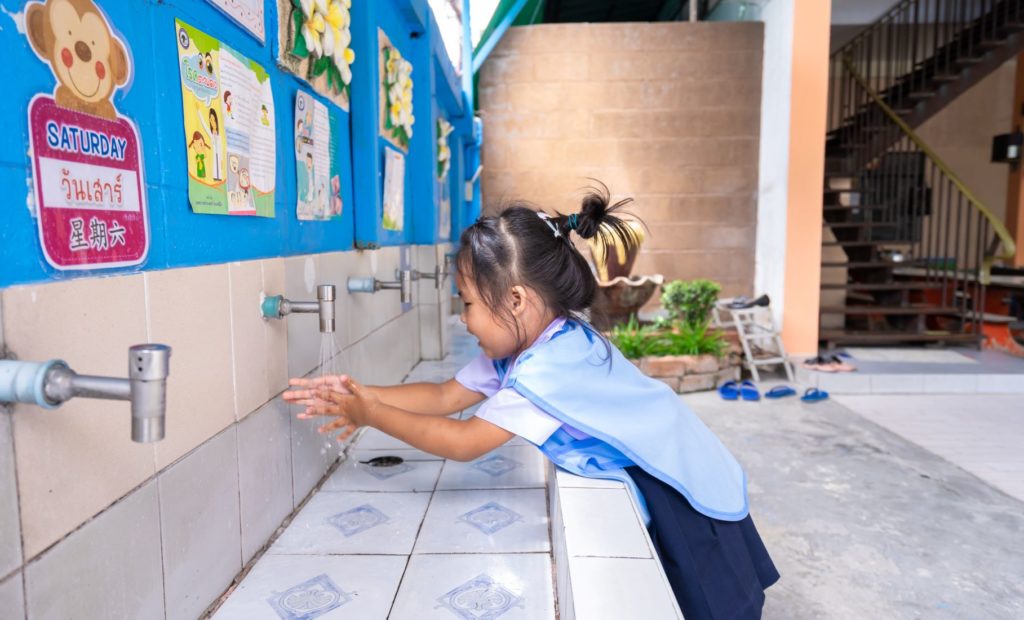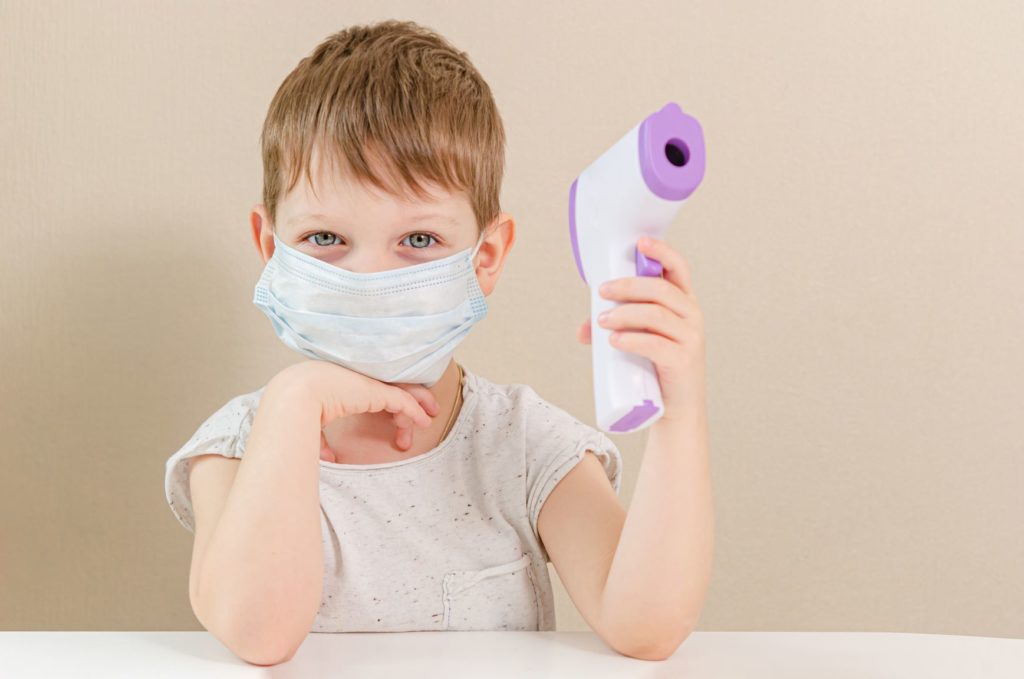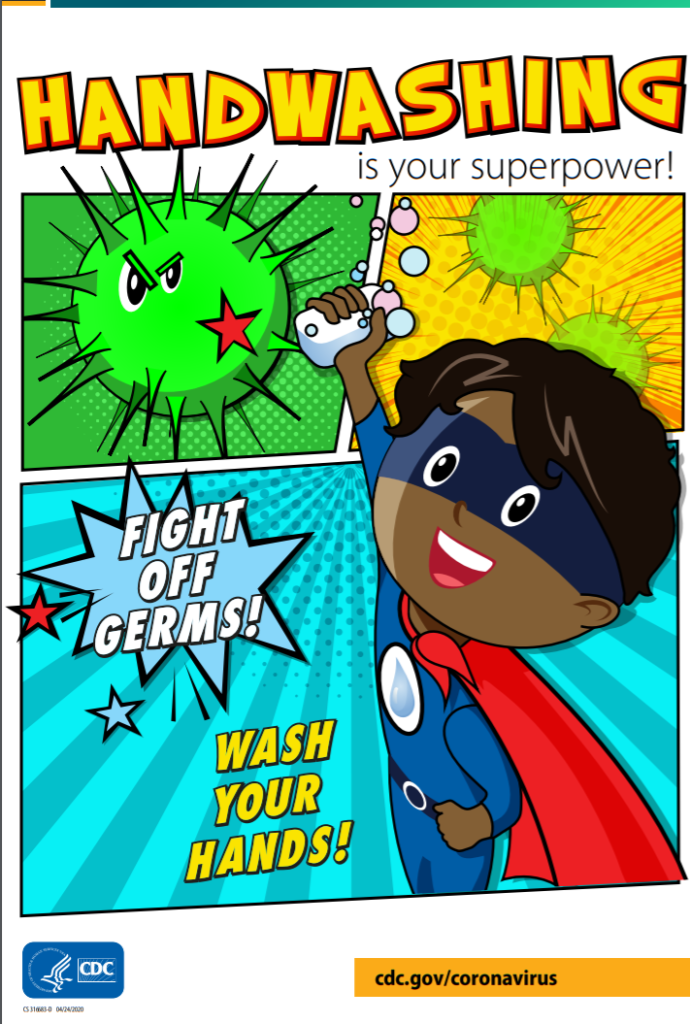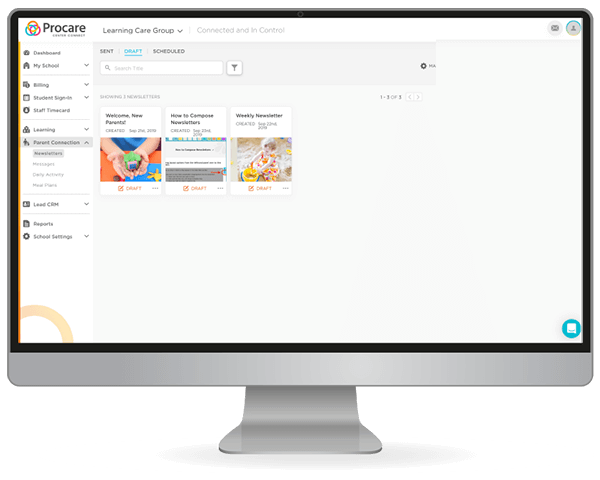
Child care centers have been disproportionately impacted by mandated business closures or service reductions due to the coronavirus pandemic. In March and April of 2020, most states directed child care centers to offer services exclusively to the families of essential workers, or in some cases, to cease operations completely.
Today, some states are beginning to roll back their lockdown measures. Daycare centers are now being asked to reopen their doors and achieve rapid compliance with state public health and CDC guidelines for limiting the spread of coronavirus in their facilities.
When these policy reversals come – frequently with little notice – they can leave child care directors and administrators scrambling to implement the new policies and procedures, organize staff and reconnect with parents – all against a backdrop of health concerns and regulatory uncertainty.
To make things easier, we’ve put together this guide on what to expect when preparing to reopen and operate your daycare during a pandemic.
Operating Your Daycare Amid Coronavirus Risk: A New Reality
Child care centers were among the businesses most affected by the coronavirus pandemic. A survey conducted in April 2020 by the National Association for the Education of Young Children (NAEYC) learned that nearly 50 percent of child care centers nationwide had closed their doors, with the majority that remained open operating at less than 50 percent enrollment.
Many child care centers that initially tried to stay open were closed due to significant, unsustainable financial losses. Many of these centers were unable to access government stimulus money and some are facing bankruptcy as a result.
Yet even as child care centers struggle to keep their doors open, we know that there will be significant demand for child care services as more parents return to work in the coming months. Parents have been working from home with kids and relying on family members to supplement their child care needs during the pandemic, but many will need the support of child care centers to enable their return to in-person work.
At the same time, parents have serious concerns about elevated demand for child care services after the pandemic and how facilities will operate while limiting the spread of coronavirus to protect families and the community.
The reality for child care centers and for parents is that getting kids back into child care can’t wait until things go “back to normal.” Child care centers need to engage and collaborate with parents to make reopening child care centers as safe and effective as possible so families can start getting back to work.
Daycare Operating Guidelines During Coronavirus: Changes on the Way

As daycare centers move to resume operations in this uncertain environment, big new changes are on the way that will impact how child care centers operate to protect their kids, staff members and the community.
New Operating Guidelines
Federal and state regulators are releasing new guidelines for daycares dealing with the impacts of coronavirus. The Centers for Disease Control and Prevention (CDC) has released extensive coronavirus management guidance for child care centers that remained open during the pandemic, and for those moving toward reopening now.
State public health departments are also publishing their own guidance documents and directives to help child care centers protect their staff and kids when reopening.
New Costs
Child care administrators will need to budget for additional costs when re-opening their centers in this new environment. To comply with the CDC and directives from state public health officials, centers will need to invest in:
- Personal protective equipment such as gloves, face coverings/masks and gowns for child care workers.
- Protective barriers for administrative office staff in customer-facing roles
- Additional soap, hand sanitizer and tissue to support healthy hand hygiene
- Cleaning supplies to support routine disinfection of toys, bedding and surfaces at the center
- Diagnostic equipment to check kids and staff members for fever or signs of illness
New Staff Training Requirements
Child care providers will be required to learn new skills and take on new responsibilities to help protect their communities and centers from coronavirus transmission.
To comply with the CDC guidelines, staff members may need to:
- Model healthy hand hygiene for kids
- Teach kids about the importance of social distancing and hand washing
- Add extra steps when diapering, washing, feeding or holding a child to avoid spreading germs
- Participate in screening kids for fever as they arrive at the center each day
- Hold parents accountable to new policies and procedures
High Demand for Services
With many child care centers remaining closed or having gone out of business, availability of child care slots is at a low point in America. As more parents return to work, centers that are open may see a high demand for their services with long waitlists exacerbated by reduced program space.
The best way to assess demand for child care services in your area is through direct parent engagement and communication.
Operating Your Daycare During a Pandemic: How to Survive and Thrive
In the final section of this guide, we offer six pieces of advice on how to survive and thrive as you operate your daycare in the new environment.
Reimagine Your Brand & Marketing
Parents with genuine concerns about coronavirus safety will be on the lookout for child care centers that are set up for social distancing and child safety.
This creates a new opportunity for child care centers to market themselves as protectors of the community and guardians of children’s health.
Child care directors and administrators should think about how parents’ priorities may have shifted when choosing a child care center and adjust their marketing messages to reflect those new priorities.
Emphasize the Value of Early Learning
While the coronavirus has thrown child care in America into disarray, there is one thing that has not changed: the value of early learning in shaping young minds and giving kids the best possible start in life.
Even parents who are concerned about coronavirus continue to recognize the important role that child care centers play in providing high-quality education and socialization opportunities for kids. Centers should continue to remind parents about the value of child care centers in providing the positive interactions and experiences that kids need to develop into healthy young adults.
Follow the CDC Guidelines

As child care centers redesign their marketing messages to drive enrollment, it is crucial those messages are supported by genuine action.
Child care centers should strive to comply with CDC guidelines for infection prevention and develop a complete infection response plan prior to reopening.
Centers should also visit the website of the government agency that regulates child care in their state to discover any additional state-level guidelines for reopening a daycare during coronavirus.
Go Paperless
During the coronavirus pandemic, we noticed more and more businesses preferring debit and credit card transactions over cash payments to limit the spread of germs.
Paperless billing not only reduces the spread of infection by eliminating paper transactions between parents and the child care center, but also, it’s also more convenient and provides more flexibility in payment options for parents.
The Procare daycare app makes it easy for child care centers to send digital invoices and receipts to parents while accepting electronic payment from a variety of sources.
Streamline Core Processes
Daycare centers operating in this new environment will have several new processes to manage, including new pick-up/drop-off procedures, diagnostic testing for illnesses and cleaning schedules.
The most successful child care centers will reduce management overhead by streamlining core administrative processes with a child care management solution like Procare.
Procare helps child care centers simplify activities like staff management, billing and payments, payroll and financial accounting. This helps centers increase their efficiency and reduce costs, so they can allocate more time toward providing the best experience for kids and parents.
Focus on Parent Engagement
Effective parent engagement and collaboration will be crucial for operating a daycare in this new environment. Parents may feel more anxious than usual about leaving kids in your care, so it is important to reassure them with timely communication and regular status updates.
Centers can leverage child care management software from Procare to engage parents with weekly newsletters and updates on new policies and procedures. Early childhood educators can use the Procare app to send pictures and videos to parents throughout the day with updates on their child’s milestones and activities.

With regular updates and transparent communications, parents will feel comforted that their kids are in safe hands at your child care center.
Meet the Challenges of Operating Your Child Care Center with Procare
With over 30 years in the child care software business, Procare is ready to help you meet the challenges of operating your daycare center in this new and uncertain environment.
Are you ready to get started?
Request a Demo to Learn More about Procare



